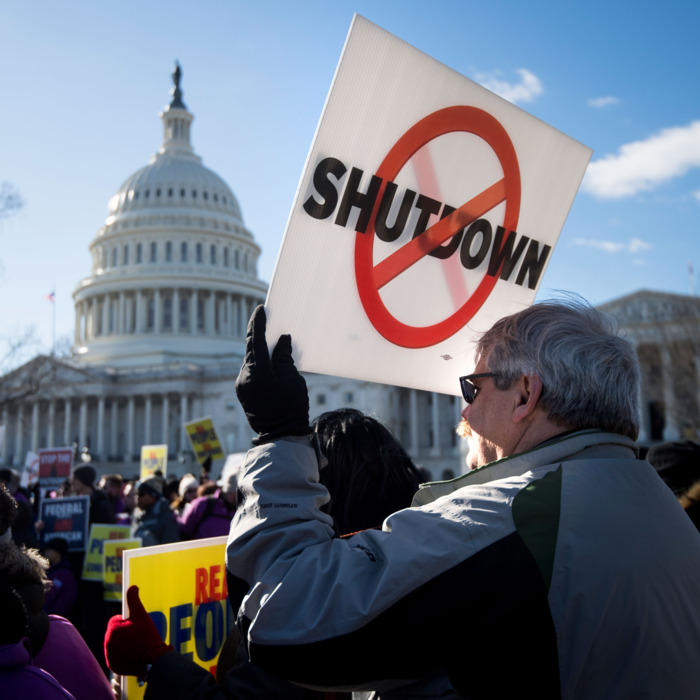
By Max Sano || Staff Writer
Friday, January 25th marked the 35th and final day of the government shutdown. 800,000 federal employees have been affected by this crisis, which is the longest in American history. They will go without their second paycheck in over a month even though 80% of the American workforce lives paycheck-to-paycheck. The shutdown has affected numerous government agencies that serve crucial roles in protecting millions of Americans. There is a lot to unpack from the last 35 days or so, but it is important to understand how this crisis began.
On December 21st, 2018, the deadline to fund various parts of the governments passed without an agreement between the Trump Administration and Congress. The parts of government directly affected include the State Department, the Justice Department (particularly the FBI), the Transportation Department, the Agriculture Department, and the Department of the Interior (particularly the National Park system). These agencies are unable to properly function because of a dispute between the White House and Congress on the president’s $5 billion to continue the construction of Donald Trump’s long-hailed border wall, the crux of his 2016 campaign and apparently the Trump Administration. In an Oval Office interview on December 11th with then House Minority Leader Nancy Pelosi (D-CA) and Senate Minority Leader Chuck Schumer (D-NY), Donald Trump declared, “I am proud to shut down the government for border security, Chuck,” he said, “because the people of this country don’t want criminals and people that have lots of problems and drugs pouring into our country. So I will take the mantle. I will be the one to shut it down.” As early as the first day of the government shutdown, President Trump attempted to change the narrative by shifting the blame to Democrats for not only failing to coming to the table to negotiate, but by accusing them of neglecting border security. Despite this deflection, a poll conducted by the Associated Press-NORC Center for Public Research determined that 6 in 10 Americans blame the shutdown on Donald Trump.
The polling stands as is largely as result of the sprawling effects of the shutdown on numerous government agencies offering government jobs that were not funded over a month ago. For example, the Federal Aviation Administration (FAA) unions sued the Trump Administration to get paid for work during the shutdown on the grounds that unpaid work violates labor laws and the Constitution. More insidious, however, is the fact that sick leave is on the rise and has contributed to delays at Northeastern airports including LaGuardia, the FAA reported on the 35th day of the shutdown. There are around 5,000 commercial airplanes in the air at once that aviation inspectors are responsible to observe and advise their flight paths. That stress, in addition to the stress of maintaining a second job or not knowing how to raise the money to support your family, can be unbearable.
Separately, the Internal Revenue Service (IRS) has at least 14,000 workers that did not show up for work as the shutdown disruption began hitting the tax agency. The effects of this will be felt financially in the pockets of millions of Americans who may not receive tax returns as soon as expected. According to a report by the New York Times, the agency has lost 25 IT personnel each week, compromising its ability to assist Americans in filing their tax returns for the April 15th deadline. In addition, there are over 46,000 furloughed IRS employees that still go to work in spite of the government shutdown. Similar to aviation inspectors in the FAA, IRS employees largely live paycheck-to-paycheck, so employees and their families will continue to feel the financial strain as the former miss their second paycheck since the shutdown began.
It is clear that the effects of this partial government shutdown have already hurt numerous lives and disrupted not only the economy and public health, but national security and other protections from violence and criminals. Transportation Security Administration (TSA) employees have quit en masse because of the long unpaid hours and the stress of the job. The same is true for the Food and Drug Administration (FDA), whose food inspectors have been unable to receive their pay. As a result, food inspections are dramatically reduced, identical to the inspections that caught e.Coli in romaine lettuce at the end of 2018. Our national parks are overflowing with trash, causing outside organizations to invite volunteers to maintain the public spaces while the government is shutdown. Soon other agencies may be affected if there is no compromise, including funding for judges. The shutdown may also impact the U.S.-China trade negotiations if trade representatives are unable to show up for work. The time is now for both the White House and Congress to reopen government immediately in order to hold a debate over immigration policy, and pass the much-needed, comprehensive reform that the American immigration system has needed for decades.
Max Sano is a Staff Writer. His email is msano@fandm.edu